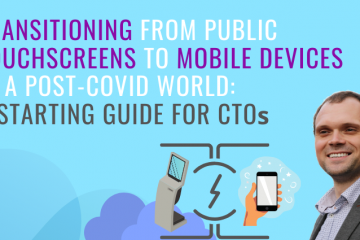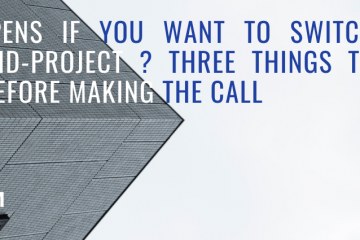But the only way to truly evaluate their part“How do I find the best engineers out there for my project?”
This is one of the most common questions — and struggles — in today’s innovative tech landscape. There’s nothing worse than having your business goals held back by something as simple and seemingly easy to fix as a staffing shortage.
You’ve got everything you need to succeed — the innovative idea, the funding, the drive, the culture, the ambition, the vision. Now all you need are the engineers to make it happen, right?
But that’s where the roadblock comes in. The more innovative your idea is — especially if you’re working on the frontier of innovation in areas like blockchain, mobile apps, computer vision, AI, Big Data, etc — the more innovative your engineers to be. You need the best of the best to succeed.
So, how do you recognize world-class tech talent when you come across it? Among other things, it’s all about smart interviewing. Design a foolproof interview process, and you’ll be able to spot the real talent and seize upon the innovative thinkers who can make or break your business.
Here are a few key strategies and approaches to consider next time you’re getting ready to interview engineer candidates for your critical IT roles.
1. Use strategic interview testing before you ever ask a single question.
You may only have an hour in a room (or in a video chat) to really get a sense of the person you’re trying to hire. So above all, you need to maximize that time so it’s as efficient and effective as possible.
Plan your questions in advance — and make sure those questions are designed to seek out what you’re truly looking for.
How do you make sure your questions are quality ones? Surprisingly, one strategy is the same thing we do all the time in the rest of our work, and yet it’s one of the things companies do the least when it comes to developing interview questions. You need to test them first.
Test your questions before you start using them on actual candidates. Try practice runs on the top-notch engineers you already have, for example, and see how they perform. Are the questions flexible enough to make you come away with a true picture of their skills, expertise and talents? What sorts of follow up questions do you need to keep digging until you get to where you need? What are the biggest gaps after your test and how can you close them the next time around? What kind of answer were you looking for when you asked the question, and did you actually get that answer?
Have a hotwash with your “test” candidates afterwards to get their impressions, too. They’re going to be an invaluable source for feedback, not least because they’re probably the ones who will be working closely with whomever you hire.
2. Don’t just find out what candidates have done. Make sure you ask them how they did it.
A candidate might very well have some impressive achievements listed on their resume. Maybe they say they developed a process to reduce development time by 20%. Maybe they purportedly led a computer vision team in building out and refining a complex detection algorithm.
in that achievement — and therefore whether they have what it takes to repeat it — is to dig deeper and find out not just what they did, but (1) why, and (2) how.
Make sure there’s time and structure in your interview to truly get to the how. Behavioral interview techniques, especially the STAR interview method, can be one strategy here. STAR stands for “Situation, Task, Action, Results.” STAR can help you find out the problems your candidates faced, the specific actions they took in response and the impact. It’s key to assessing their skills.
You’ll also easily be able to find out through this method how big of a role they actually played by how well they understand it. Were they the driving force in that achievement, or just a bystander/participant along for the ride?
Ultimately, you’re trying to discover how they think. Innovative engineers think through problems in innovative ways. The problem itself may not be as important in the long run from your perspective as being able evaluate the candidate’s thought process that went behind the solution. That’s where the true gold lies.
3. Make your interview a challenge, in a good way.
How do you find innovative talented candidates who love a good challenge?
Challenge them in your interview and assess how they respond. Ask tough questions that will really make them think and really make them work.
In the best case, they’ll be energized and stimulated. That’s the energy you want to harness for your company, so this will be your chance to see it in action.
Another benefit of this approach is that it’ll influence how these top-talented candidates see you and your company, too. As a former Amazon VP said about the tech interview process, one interview goal is “Make it tough but fun. Good developers want to know they’re talking to smart folks.”
How do you ask the tough questions? Make sure they are technical enough to capture their attention, and yet also open-ended enough that the answer isn’t obvious or limited. A problem with multiple solutions is the best — again, it’s not about whether or not they “pass the test” but whether you can get a sense of how they think and how they respond when faced with a problem. Maybe you even break out the whiteboard or a have them write a few lines of code on the spot.
This shouldn’t be the sole focus of your interviews, but it can really help you narrow down your candidates and spot true talent, in addition to letting them learn more about you, too.
4. Remember that talent and experience aren’t always the same thing.
A candidate can come to you with a long resume outlining years of engineer experience. That’s impressive, and potentially tells you a lot of things right off the bat. They’re likely professional and skilled enough for someone to have kept them around, if nothing else. But… are they really the best?
Experience is important, sure. But so is talent. Because, as we all know, experience doesn’t necessarily lead to top performance.
In fact, as a Stanford University leadership expert has pointed out, experienced people have a tendency to make assumptions based on their previous experiences when confronted with a problem. If they think they recognize a pattern from what they’ve seen before, they may not be able to see new data points, perspectives and possibilities. That’s a problem if you’re trying to find talented engineers who can truly innovate.
So, make sure you also use some of your interview time to identify your candidates’ bigger-picture capabilities (or “soft skills” as they’re also called). This will give you the opportunity to evaluate candidates who have real potential to excel, even if they don’t have as much experience on paper.
In particular, in the field of emerging tech when new developments are disrupting the status quo every day, creative thinking and adaptability are two key qualities to prioritize.
Ultimately, the jury is still out on what’s more important — talent, experience or both. But if you take these strategies into consideration, you’ll be much more likely to come away from your interview process with a solid understanding of your candidates’ skills and capabilities. And you’ll be that much closer to finding the innovative talent you depend on to succeed.
————–
Can Genium help connect you with top-notch tech expertise?
At Genium, we’ve made it our mission to recruit and retain the world’s best engineers and developers in the most cutting-edge areas of tech out there. Through both team extensions and custom development projects, we lead the way in building talented teams with the in-demand skills and expertise to keep companies powered by innovation while minimizing risk. Contact us today to find out how we can connect you with the experts you need to innovate at warp speed.


